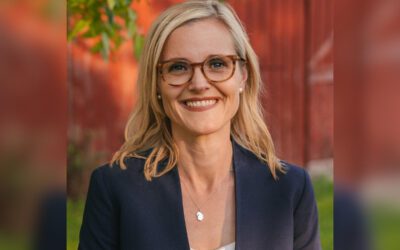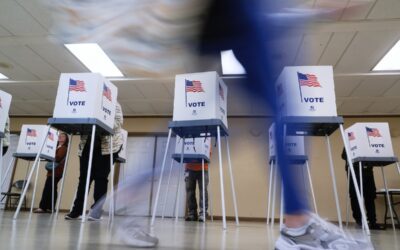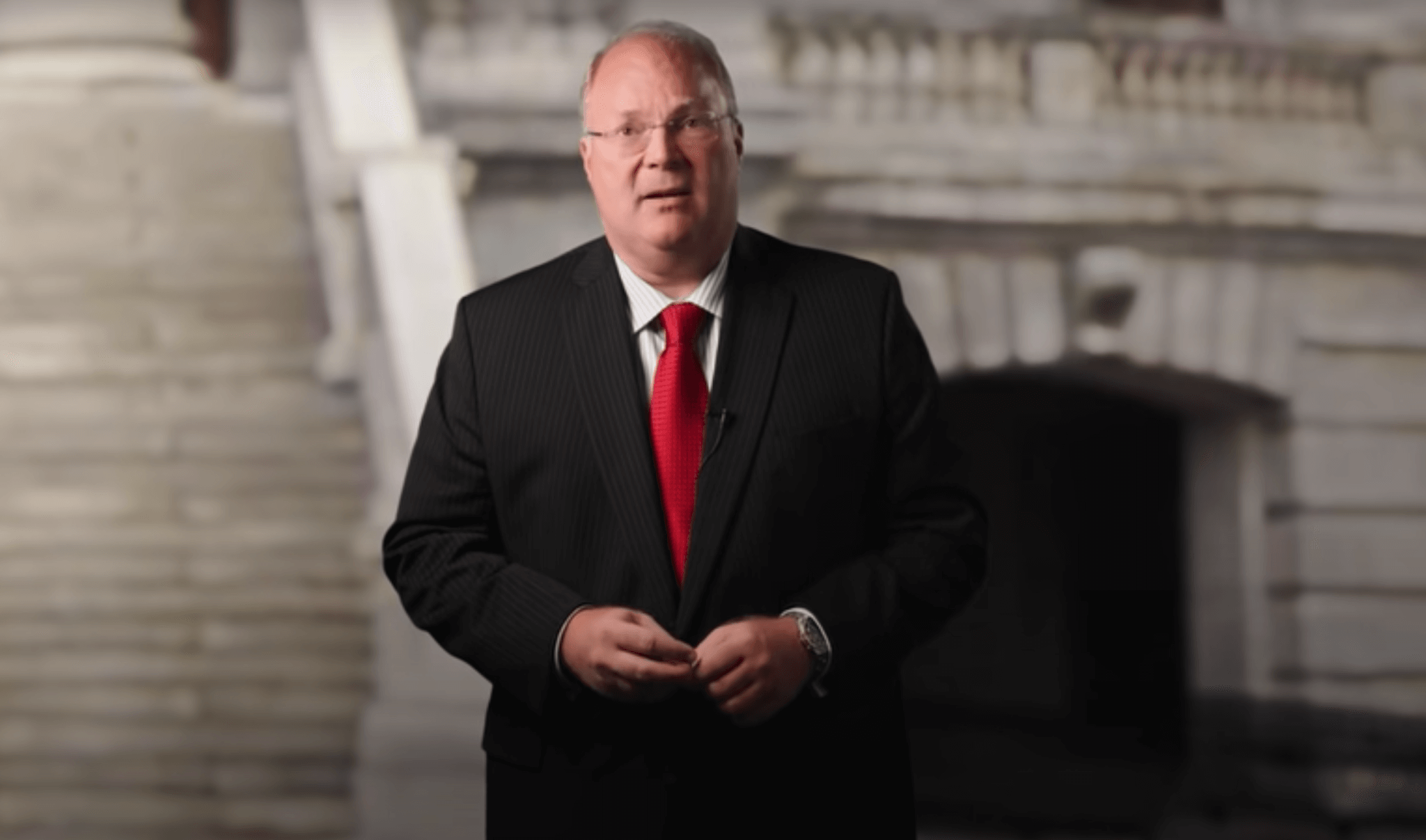
#image_title
Former state Supreme Court justice’s update on Republican-led, taxpayer funded review devolves into heated exchange.
Testimony from a former state Supreme Court justice degenerated into shouting matches Wednesday morning as he tried to defend a Republican-led, taxpayer-funded review of the 2020 election.
Michael Gableman, who Republicans are paying $11,000 per month in taxpayer funds to lead the “investigation,” spent much of his time before the Assembly Committee on Campaigns and Elections airing grievances and casting aspersions on state representatives, municipal officials, the press, and anyone else who has questioned or criticized his work.
The review, which has been marred by amateurish mistakes, is part of Republicans’ multi-pronged effort to undermine public confidence in the state’s electoral system. Gableman has publicly claimed the 2020 election was stolen and spent time consulting with conspiracy theorists during the investigation. Multiple court rulings, a recount in Milwaukee and Dane counties, and election experts have repeatedly upheld the election and found no widespread fraud.
Gableman had particularly heated exchanges with Reps. Jodi Emerson (D-Eau Claire) and Mark Spreitzer (D-Beloit). When Emerson stated she had “a hard time believing what’s coming out of your investigation,” Gableman interrupted, shouting, “Tell me what you don’t believe.”
Spreitzer and Gableman exchanged shouts of “shame on you” after Spreitzer asked whether it was wise for a supposedly nonpartisan investigation to hire someone who had sued to overturn the election results.
Spreitzer was referring to Ron Heuer, president of the Wisconsin Voters Alliance, which filed a lawsuit to stop the Wisconsin Elections Commission from certifying the election so the Republican-led Legislature could choose the state’s electors. That lawsuit was so riddled with errors that US District Judge James Boasberg mocked it and referred the attorney, Erick Kaardal, for discipline.
“It would be risible were its target not so grave: the undermining of a democratic election for President of the United States,” wrote Boasberg.
RELATED: ‘This Isn’t a Real Investigation’: Email Sent by Gableman to Election Clerks Raises Alarm
Gableman, who had repeatedly refused to identify who was working for him, finally identified all but one staffer. He said he would not name the last member of his staff “in order to protect his best interests with his full-time employer.”
Among Gableman’s complaints was the statement from Assembly Speaker Robin Vos’s (R-Rochester) spokeswoman, Angela Joyce, that Gableman should not have been reimbursed $2,700 for a trip to Arizona’s own GOP-ordered election audit. Vos publicly stated in August that those trips would have to be paid for out of Gableman’s salary.
“I indeed have a travel budget of $25,000. I’m confident Ms. Joyce would not have been aware of that at the time she was approached,” Gableman said. “Although the original agreement with the speaker’s office called for all expenses of this investigation to be taken out of my $11,000-a-month income, I knew from the get-go that any reasonable person knows that that’s not realistic. That’s not going to happen.”
Among his listed expenses, Gableman stated he has earned $33,000 in three months. The average annual individual income in Wisconsin is $32,009.
Focused on Facebook
Gableman’s testimony also suggested that he is homing the investigation in on the funds from the Center for Tech and Civic Life (CTCL) which were dispersed to over 200 Wisconsin municipalities, including $6.3 million for Wisconsin’s five largest cities: Milwaukee, Madison, Green Bay, Kenosha, and Racine.
The group was formed and is funded largely by Facebook creator Mark Zuckerberg, but the nonprofit organization is not a part of Facebook.
Republicans have filed lawsuits and held hearings on the funding, suggesting that Zuckerberg tried to swing the election for President Joe Biden by giving the five Democratic-leaning cities funding (even though 200 other municipalities of various political makeups also received grants). Gableman’s biggest issue was that he does not believe the majority of that funding went towards COVID-19 safety measures and that more went toward “get out the vote” initiatives.
“Somewhere along the way, the plan from CTCL relative to those five cities changed from the stated purpose of keeping people safe from COVID,” Gableman said. “We look at the record to see how much money was actually spent on COVID safety measures and we see it as it pales in comparison with the amount of the get out the vote effort. Now, get out the vote has historically been a partisan term of art. ‘Get out the vote’ is short for ‘get out the vote for a particular candidate for office.’”
Gableman did not specify what expenses he considered COVID safety precautions and what were “get out the vote” initiatives and how those designations broke down for monies spent on the election. As for the conventional wisdom that higher turnout benefits Democrats, after the 2020 election, some research has cropped up showing both parties turned out in higher numbers, raising questions on the accuracy of that assumption and whether Republicans’ efforts to restrict voter access could backfire.
One of Gableman’s gripes was about the taxpayer-funded lawyers hired by the cities who are the focus of his investigation but the attorneys he has hired hail from Arkansas, California, and Washington DC.
Another was that the mainstream media had not looked into the CTCL funds for the election because “they were happy Joe Biden won.” The election, CTCL, and the court cases received extensive coverage.

Wisconsin doesn’t vote Nov. 4, but here are the 2026 election dates
While voters in places like New Jersey, Virginia, California and New York City go to the polls Tuesday, Nov. 4, Wisconsinites have to wait a bit...
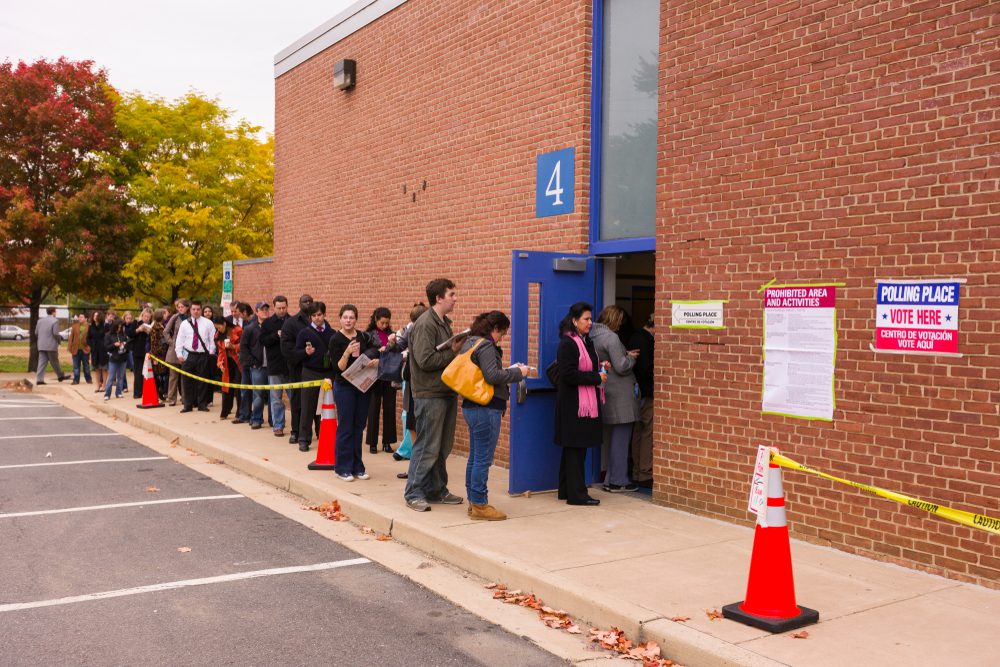
Gwen Frisbie-Fulton: Real solutions for Wisconsin begin with local engagement
My neighbor Tamara is tired of politics; she tells me this all the time. She says she doesn’t watch the news except for the weather, and would...
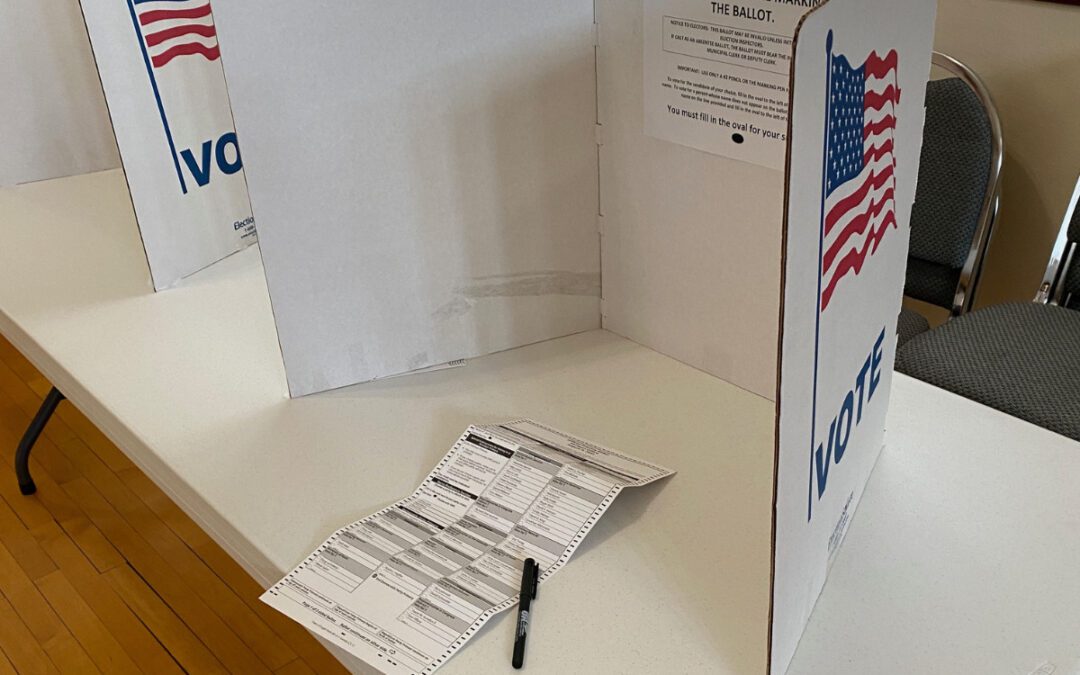
Citizen-driven ballot initiatives can’t happen in Wisconsin, but some people are trying to change that
About half the states have some process that allows citizens to collect enough signatures to force statewide referendums — something only the...

Trump: End mail-in voting. Wisconsin: No thanks
Democrats, Republicans, and Independents point to our state’s long history of secure elections that embrace absentee ballot use to make democracy...


